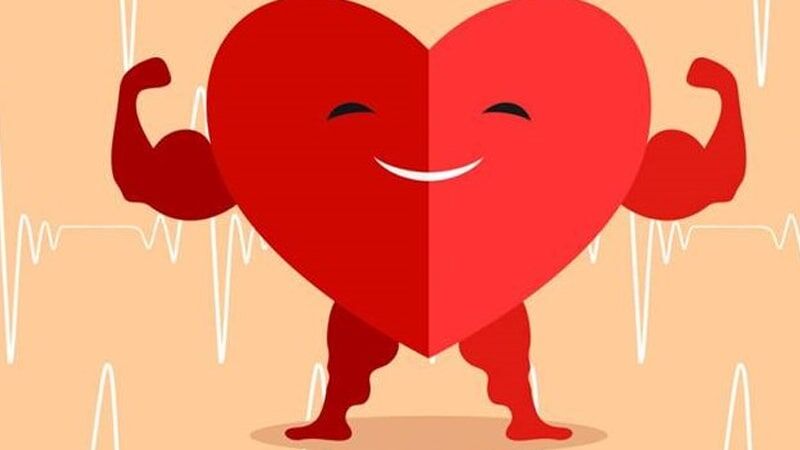Heart disease is the leading cause of death in the United States according to the CDC. 1 in every 4 deaths that occurs in the United States is attributed to heart disease. In the United States, the most common type of heart disease is coronary artery disease (CAD), which can lead to a heart attack.
Tri-City Cardiology reports there are several factors that cause heart disease including:
- High Cholesterol One primary cause of heart disease is high cholesterol. Having too much bad cholesterol increases your risk for cardiac disease due to the hardening of the arteries. If the arteries are hardened, they become blocked, which could lead to a heart attack.
- High Blood Pressure High blood pressure, also called hypertension, is another risk factor for heart disease. Having elevated blood pressure can block proper blood flow, and lead to cardiac arrest. Heart failure and disease of the heart are extremely common in individuals who have high blood pressure and do not treat it properly.
- Diabetes There have been many links between diabetes and cardiovascular disease, diabetes is more common in people who eat unhealthily and are struggling with obesity.
Other factors
There are two other factors that can lead to heart disease are:
- Obesity Obesity is associated with an increased risk of developing cardiovascular disease, particularly heart failure. Penn Medicine states Obese individuals require more blood to supply oxygen and nutrients to their bodies which causes an increase in blood pressure. High blood pressure is a common cause of heart attack, which is more common for obese individuals.
- Poor Diet The Cleveland Clinic reports Poor Diet Linked to Half of Heart Disease, Stroke, Diabetes Deaths. Research from Tufts University in Boston, the University of Cambridge in England, and Montefiore Medical Center in New York analyzed data from the National Health and Nutrition Examination Survey.
They looked at the deaths of more than 700,000 people in 2012 from heart disease, stroke, and type two diabetes, and examined 10 dietary factors like sugar-sweetened drinks, processed meats and sodium intake
The Results
Their analysis showed that 45% of the fatalities were linked to unhealthy eating habits (Diets). These people regularly ate foods long associated with influencing cardiovascular and metabolic health.
The largest number of heart disease deaths was associated with a high intake of processed meats and sugar-sweetened beverages. High stroke risk was associated with a diet low in fruits and vegetables and high in salt.
Increased risk of death from diabetes was associated with a diet that consumed more processed meats and sugar-sweetened drinks and not enough whole grains. The food linked to the most deaths overall was salt.
You can greatly reduce your risk for heart disease through lifestyle changes. Adopting a healthy lifestyle is not as easy as it sounds. It can be done, but it takes some work.
The first and most important part of adopting a healthy lifestyle is to begin by changing your eating habits, choosing a more healthy diet. It all starts with what you put in your system and a healthy diet is nothing more than eating healthy foods.
When you adopt a healthy diet, you are Dieting Rite! It is not always to lose weight. Many slim people can also suffer from high blood pressure, even diabetes, and need to change their diet to more healthy food choices.
There are many benefits when you Diet Rite. If you require #healthydietadvice then visit https://dietritesystem.com/
Improving your Heart
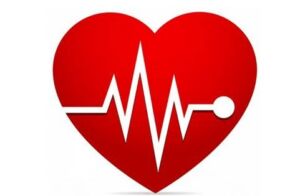
To improve your heart through your diet, you need to know what foods are good to eat, or heart-healthy and which foods to avoid., Here are some heart-healthy foods to help you Diet Rite!
Heart Health Foods:
Dark Leafy Green Vegetables
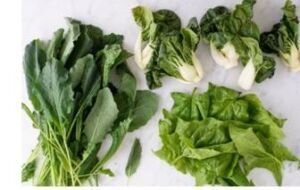
Whole Grains
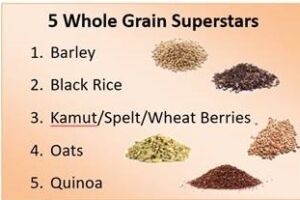
When purchasing whole grains, make sure to read the ingredients label carefully. Phrases like “whole grain” or “whole wheat” indicate a whole-grain product, while words like “wheat flour” or “multigrain” may not.be 100% whole grain.
Berries

Strawberries, blueberries, blackberries, and raspberries are loaded with important nutrients that play a central role in heart health. Berries are rich in antioxidants like anthocyanins, which protect against the development of heart disease Studies show that eating lots of berries can reduce several risk factors for heart disease. One study in 27 adults with metabolic syndrome showed that drinking a beverage made of freeze-dried strawberries for eight weeks decreased “bad” LDL cholesterol by 11%
Metabolic syndrome is a cluster of conditions associated with a higher risk of heart disease. Studies showed that eating berries were associated with reductions in “bad” LDL cholesterol, systolic blood pressure, body mass index, and certain markers of inflammation.
Berries can be a satisfying snack or delicious low-calorie dessert. Try adding a few different types to your diet to take advantage of their unique health benefits.
Avocados
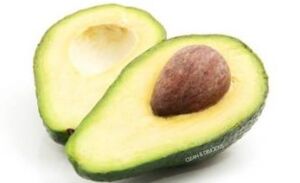
Avocados are an excellent source of heart-healthy monounsaturated fats, which have been linked to reduced levels of cholesterol and a lower risk of heart disease. One study including 17,567 people showed that those who ate avocados regularly were half as likely to have metabolic syndrome. Avocados are rich in potassium, a nutrient that’s essential to heart health.
In fact, just one avocado supplies 975 milligrams of potassium or about 28% of the amount that you need in a day. Getting at least 4.7 grams of potassium per day can decrease blood pressure which is associated with a lower risk of stroke.
Fatty Fish and Fish Oil
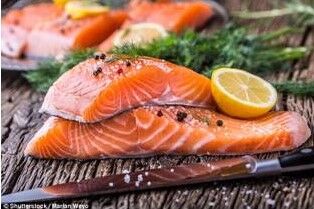
| Fatty fish like salmon, mackerel, sardines, and tuna are loaded with omega-3 fatty acids, which have been studied extensively for their heart-health benefits. One study of 324 people, eating salmon three times a week for eight weeks showed significantly decreased levels of total cholesterol, blood triglycerides, fasting blood sugar and systolic blood pressure. Every 100-gram decrease in weekly fatty fish consumption was associated with a 19% higher likelihood of having one additional risk factor for heart disease such as hight blood pressure, type 2 diabetes or obesity. |
If you don’t eat much seafood, fish oil is another option for getting your daily dose of omega-3 fatty acids
Walnuts
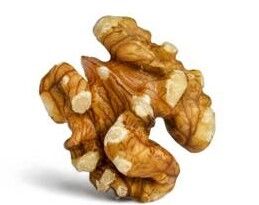 Walnuts are a great source of fiber and micronutrients like magnesium, copper, and manganese Research shows that incorporating a few servings of walnuts in your diet can help protect against heart disease. According to one review, eating walnuts can reduce “bad” LDL cholesterol by up to 16%, lower diastolic blood pressure by 2–3 mm Hg, and decrease oxidative stress and inflammation.
Walnuts are a great source of fiber and micronutrients like magnesium, copper, and manganese Research shows that incorporating a few servings of walnuts in your diet can help protect against heart disease. According to one review, eating walnuts can reduce “bad” LDL cholesterol by up to 16%, lower diastolic blood pressure by 2–3 mm Hg, and decrease oxidative stress and inflammation.
Beans
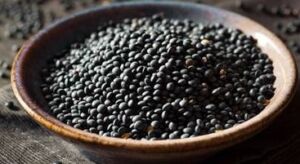
Garlic

For centuries, garlic has been used as a natural remedy to treat a variety of ailments. In recent years, research has confirmed its potent medicinal properties and found that garlic can even help improve heart health. Garlic contains a compound called allicin, which is believed to have a multitude of therapeutic effects. One study found that taking garlic extract in doses of 600–1,500 mg daily for 24 weeks was as effective as a common prescription drug at reducing blood pressure
One review found that garlic can reduce total cholesterol by an average of 17 mg/dL and “bad” LDL cholesterol by 9 mg/dL in those with high cholesterol.
Other studies have found that garlic extract can inhibit platelet buildup, which may reduce the risk of blood clots and stroke
Be sure to consume garlic raw, or crush it and let it sit for a few minutes before cooking.
This allows for the formation of allicin, maximizing its potential health benefits.
Olive Oil

Take advantage of the many benefits of olive oil by drizzling it over cooked dishes or adding it to vinaigrettes and sauces.
Diet Rite believes that a healthy diet can improve a lot of the chronic conditions we encounter every day. Diet Rite. Don’t let then name fool you. We promote a healthy eating lifestyle that will also allow you to reduce and maintain a healthy weight.
These are a few foods to include in your diet to improve your heart health
Foods to Avoid
Now that you have a better idea of what types of foods you should include in your diet to improve your heart health, here are some food to avoid to improve your heart health according to WebMD
Bacon


High amounts of sodium (the main part of salt) can lead to stroke, heart disease, and heart failure. Bacon’s added preservatives are linked to these issues as well.
Red Meats


Baked Goods


Processed Meat

White Rice, Bread, and Pasta

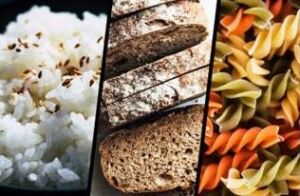
Pizza

Butter

French Fries

Fried Chicken

Conclusion
Over time, high amounts of salt, sugar, saturated fat, and refined carbs raise your risk for a heart attack or stroke.
If you’re worried about your heart, you’ll want to keep these 3 things out of your diet or at least to a minimum.
You can greatly reduce your risk for heart disease through lifestyle changes.
Adopting a healthy lifestyle is not as easy as it sounds. It can be done, but it takes some work.
The first and most important part of adopting a healthy lifestyle is to begin by changing your eating habits, choosing a more healthy diet.
It all starts with what you put in your system and a healthy diet is nothing more than eating healthy foods.
When you adopt a healthy diet, you are Dieting Rite!
It is not always to lose weight. Remember, many slim people can also suffer from high blood pressure, even diabetes, and need to change their diet to more healthy food choices..
There are many benefits when you Diet Rite
https://www.cdc.gov/heartdisease/prevention.htm
5 Causes of Heart Disease

